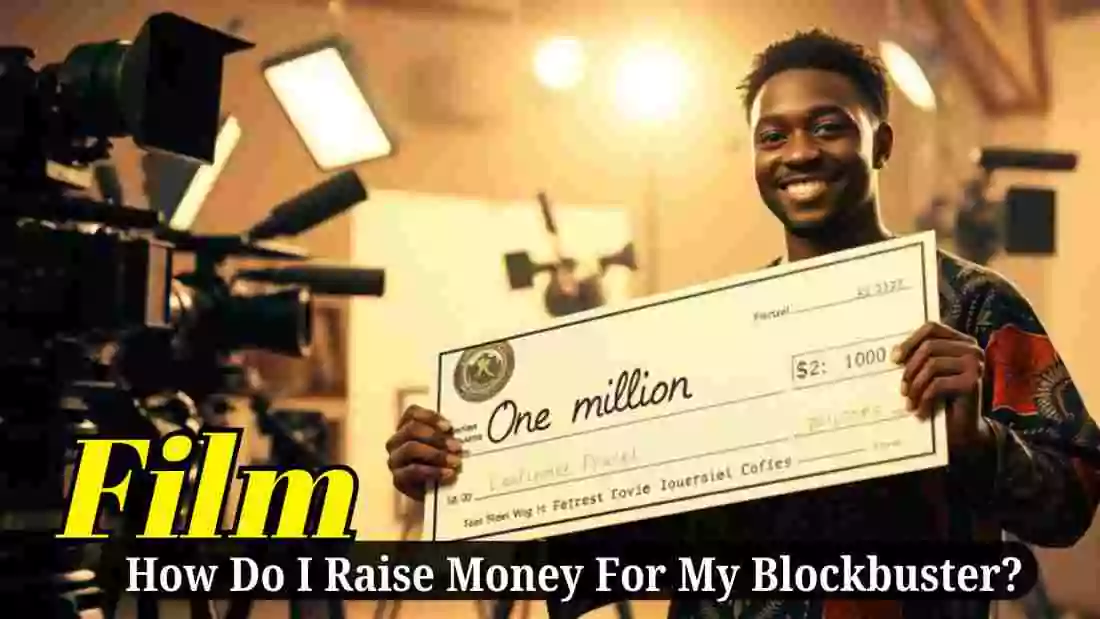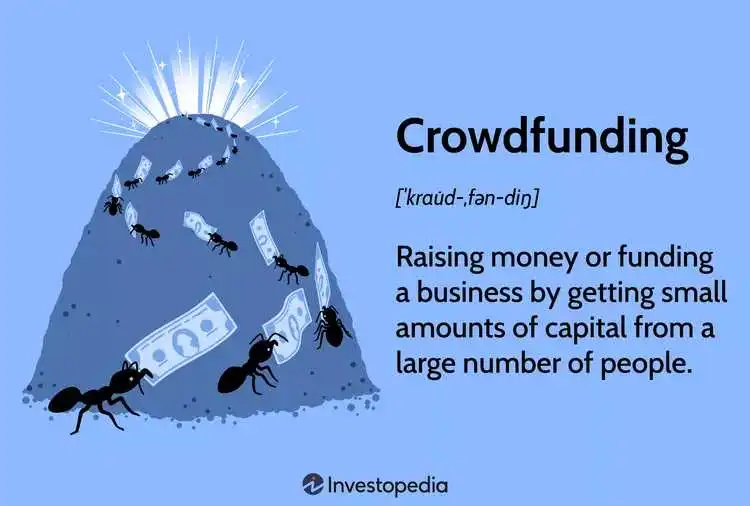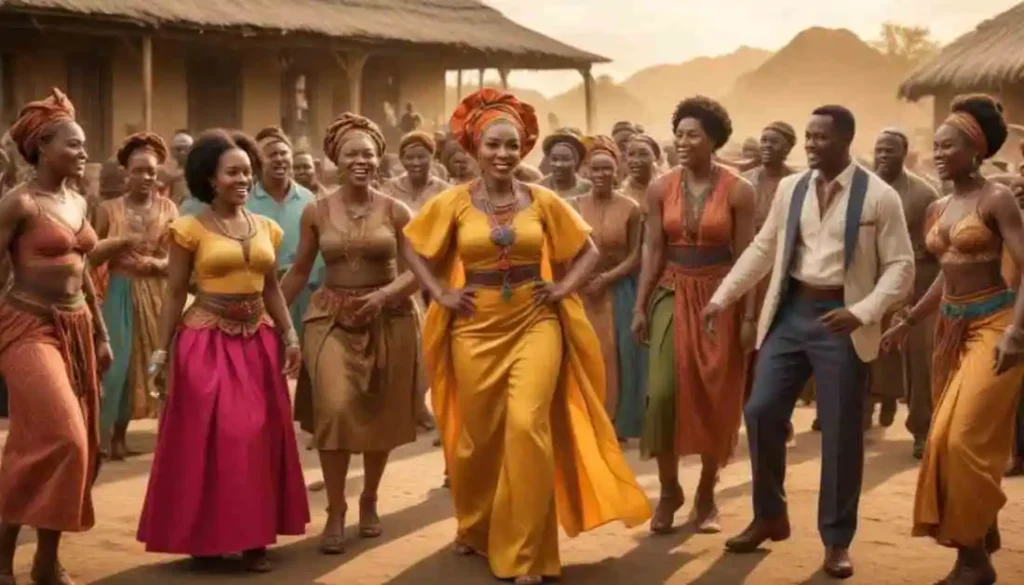
For every story that dazzles on the big screen, hundreds more stay frozen on paper.
Loads of scripts lie buried in the screenplay cemetery, with no money to exhume or bring them to life. They have no funding.
So, how do you raise funds to shoot that compelling narrative tugging at your heartstrings?
In this article, we take a close look at film funding.
We will track the money and discover where it is ‘hiding’ so you may get your fair share and shoot.
Let’s uncover funding opportunities for independent filmmakers in Nigeria and beyond.
Personal Savings

There is probably no faster way of sourcing capital for any business than using your stash. And filmmaking is no different.
Shelling out personal cash guarantees that you move fast from idea to screen.
However, this will only happen if your pockets are deep enough and you are willing to dip inside.
One advantage of using your money is creative control and full ownership of the project.
However, the flip side is that you bear the financial risks one hundred percent.
READ ALSO: Finding Your Path: Different Routes To Success in Filmmaking
READ ALSO: Short Films: First Step To A Successful Full-length feature?

Crowdfunding

So what is crowdfunding? According to Investopedia,
"Crowdfunding involves raising small amounts of money from a large number of individuals to finance a new business venture.
It leverages the wide reach of social media and crowdfunding websites to connect investors and entrepreneurs, potentially increasing entrepreneurship by expanding the pool of investors beyond the traditional circle of owners, relatives, and venture capitalists."
More filmmakers are turning to Crowdfunding platforms such as Kickstarter, Indiegogo, and GoFundMe to raise money.
The advantage of crowdfunding is that it allows you to gauge interest in your project and build an audience even before production.
But remember that running a successful crowdfunding campaign requires effort—promoting your project, engaging with backers, and offering appealing rewards.
If your campaign fails to meet its goal, you may not receive any funds, depending on the platform’s rules.
Grants and Fellowships

Grants and fellowships are funding options many independent filmmakers explore.
The grants come from different sources, including non-governmental organizations and philanthropists who wish to support a cause.
Grants normally have eligibility criteria, so understand the terms before applying. In most cases, the terms may include age limitation, gender, location etc.
The good thing about grants is that you do not have to pay them back. However, they are competitive.
Investors and financiers
Another option for raising funds is to find investors. These may be individuals or companies interested in backing your movie in exchange for a share of the profits.
The benefit here is that you can raise significant funds, but the disadvantage is that investors may want a say in creative decisions, which could limit your artistic freedom.
For some investors, the motivation is profit. They see filmmaking strictly as a business. While this may not be inspiring to a creative artist, it offers a level of balancing when it comes to making financial decisions, and pursuing creative goals.

Government agencies and institutions
Lagos Film Fund

A good example is the Lagos Film Fund, under the auspices of the Lagos State Ministry of Tourism, Arts and Culture.
The fund offers a loan of between N3 million and N35 million for filmmakers who reside in Lagos State.
But who is eligible to apply for the fund?
According to the Ministry on its website:
“It is open to all filmmakers and distributors who are not below the age of 18 and who must be residents of Lagos State. The fund is available for all genres of films.”
In 2023, the Ministry announced that it had approved N400 million in grants for filmmakers and practitioners in the creative sector.
If you wish to apply for the Lagos Film Fund, sign up here.
Also, as part of its support for the creative sector, the Lagos State Government is building a $100 million African film city in Epe.
The Bank of Industry

On a national level, we also have the Bank of Industry Nolly Fund. This initiative by BOI (a development finance institution) was launched in 2015 with a capital base of N1 billion to support Nollywood.
Over time, it has supported several productions, such as Biyi Bandele’s Half of a Yellow Sun, Michelle Bello’s Flower Girl, Kunle Afolayan’s The CEO, and Queen Amina by Okey Ogunjiofor.
By the way if you have any info about recent movie projects supported by BOI, please share in the comment section.
Pre-Sales and Distribution Agreements
Some filmmakers secure funding by selling the distribution rights to their movies ahead of actual production. This approach is known as a pre-sale.
The advantage is that you receive funds upfront, but the downside is that you may have to give up some control over the distribution.
Film festivals and competitions

Many people consider film competitions low-hanging fruit when it comes to funding. But this is not correct. True, you stand a chance of winning cash prizes that can help push your projects forward or even fund them entirely.
But they are competitive. Furthermore, some competitions have entry prizes, pushing back those who may not have the funds to enter in the first instance.
Nonetheless, participating in film festivals and competitions is another way of securing money to make your film. In addition to the cash incentive, some competitions offer film equipment or opportunities to participate in a larger project.
However, on a larger scale, perhaps the most significant value of festivals and competitions lies in the exposure they offer a filmmaker.
The bigger the platform, the greater the exposure you get.
JCS Young Creatives Award

JCS International organizes an annual one-minute video competition, the “JCS International Young Creatives Award.”
This competition is open to young filmmakers from all over the world. To participate, shoot a one-minute video on your phone on the subject of peace.
“The 2024 edition opened on June 27, 2024, and will close on September 19, 2024. Public online voting will begin in October 2024, and winners will announced in the same month.”
You can read more about the competition here.
There are many other competitions as well. If you want a comprehensive list, say so in the comment section.
Beyond the financial rewards, these competitions draw the attention of potential investors or producers.
Sponsorships and product placement
You can also raise funds through sponsorships from brands or companies. This works best when your film has themes or audiences that align with their products.
Product placement can also be a source of funding, In this instance brands pay you to feature their products in your film.
The challenge here is finding sponsors who see the value in your project and balancing their interests with your creative vision.
Commissioning
Some do not consider commissioning’ as a means of funding, but if you weigh it further, you will agree it is a significant one.
Production companies, streaming platforms, and distributors sometimes commission independent directors to shoot projects.
In this instance, the filmmaker directs the project while the commissioning organization foots the production bill.
The filmmaker becomes a “service provider,” lending his creative skills to make a story for a customer.
This arrangement takes away the burden of looking for funds to shoot. The filmmaker gets all he needs to make the film on a platter of gold.
However, such opportunities only come when the filmmaker has a track record of success.
Steps for Raising Funds

Create a Business Plan: Before approaching any investor, create a business plan.
This document will outline your project, budget, timeline, and how you intend to market and distribute the film.
The Pitch: You need a good pitch, regardless of whether you are doing crowdfunding or talking to private investors. Highlight what makes your project unique and why it is worth backing.
Network: Attend film festivals, industry events, and networking opportunities to connect with potential funders and collaborators.
Leverage Your Contacts: Sometimes, the best source for funds are those closest to you—friends, family, and colleagues who believe in your vision.
Be persistent: Fundraising can be a long and challenging process. Do not get discouraged by setbacks; being persistent can influence the outcome.

Conclusion
Finding the money to shoot your film can be a challenge. However, with the right strategy and persistence, you can raise the funds you need to bring your story to life.
We hope you find these tips helpful. If you have any funding strategies that have worked for you, we would love to hear them!
Please do not forget to share this Newsletter with your friends and colleagues.
PS
If you are a filmmaker (actor, crew member, producer, director, writer, etc.) looking for production jobs, Wakacast is the best place to start.
No more running around offline and online to find the latest production updates.
As a filmmaker, you can find productions jobs on the platform.
Share your audition announcements and casting calls the platform.
Connect with thousands of actors in Nigeria & Africa with zero cost.
As a producer, hire cast and crew with ease.
Let’s talk. Send a mail to: info@wakacast.com or call: +234 803-300-0277. Thank you.





